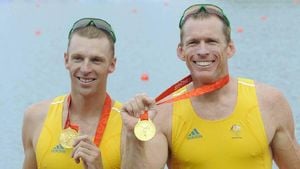At the recent COP29 climate summit held from November 11 to 24, 2024, in Baku, Azerbaijan, world leaders gathered with high hopes for meaningful outcomes. Yet, as they wrapped up nearly two weeks of discussions, disappointment loomed over many delegations, particularly those from developing nations. The central aim of COP29 was to secure substantial funding aimed at helping vulnerable countries adapt to climate change and transition to sustainable practices.
The deal, which involved representatives from almost 200 countries and drew participation from over 55,000 delegates, culminated with developed nations agreeing to increase climate finance from $100 billion to $300 billion annually by 2035. Although this was framed as tripling the previous commitment, many felt it fell dramatically short of the estimated $1.3 trillion needed to truly support developing nations facing the harsh realities of climate change. A key concern was whether the funds would be provided as grants rather than loans, which could exacerbate existing debt burdens.
Tuvalu’s Minister for Climate Change, Maina Talia, articulated the sentiment of frustration felt by many delegates. He emphasized the urgency of maintaining the global warming limit of 1.5 degrees Celsius, warning, “If we lose out on the 1.5 degrees C, then it really means nothing for us being here.” Responses were equally stern from leaders of Pacific nations, with Fiji’s negotiator outlining the challenges they faced against the reluctance of wealthier nations to address these pressing needs adequately.
Developing countries, especially small island nations—often leading the call for more ambitious financial commitments—expressed outright dismay at the outcomes of COP29. After negotiations were clearly lagging, and with many observers predicting potential walkouts, it became evident just how fraught these discussions had become. The negotiations highlighted not just the financial aspects but also the inherent tensions within the international climate diplomacy framework.
A notable theme echoed throughout COP29 was the stark divide between the funding appeals by developing nations and the pledges made by developed countries. Critics pointed out the historical responsibilities of the global north, which has contributed significantly to greenhouse gas emissions over the years, highlighting the need for equitable financial distributions.
Indian representative Chandni Raina captured this frustration, stating, “...in our opinion, (the amount of funds pledged) will not address the enormity of the challenge we all face.” Echoing sentiments shared by others, she labeled the agreement as insufficient and indicative of the limited commitment from wealthier nations to remediate the effects of their past emissions.
Adding to the complexity, negotiations were marred by allegations of misinformation and subversion, particularly against developed nations. Greenpeace Pacific lead, Shiva Gounden, claimed such nations wasted precious negotiating time with excessive verbiage, leading to frustration among smaller state representatives seeking tangible outcomes. The procedural intricacies often left little room for the more substantive discussions needed to tackle the climate crisis.
Despite these setbacks, COP29 did lay out new rules for carbon trading—a mechanism proposed to channel investments from wealthier states to support green transitions among developing countries. Critics, including Simon Stiel of the UN Climate Change, argued such arrangements could merely commodify nature without producing the substantial reductions needed to meet targets laid out under the Paris Agreement.
Commentators were quick to note the broader geopolitical ramifications of COP29, particularly as Donald Trump’s re-election loomed, raising concerns about the future of U.S. commitments to global climate efforts. The sentiment among many developing nations was one of apprehension; if this key player withdrew or reduced its involvement, the prospects for ambitious climate initiatives would dwindle.
Challenging the narrative around COP29 being merely another missed opportunity, leaders like Fiji’s negotiator underscored the fact the conference should not be labeled outright as a failure. They advocated for maintaining the continuity of negotiations, emphasizing the importance of having Pacific voices at the table regardless of how contentious discussions became. "If we don’t agree this year, then it goes to next year; the important thing is to make sure Pacific voices are present," they asserted.
Transformative change is needed now more than ever, yet with global emissions reaching record highs and countries struggling to meet existing commitments, COP29 illustrated the difficulties inherent to international climate negotiations. Activists and leaders alike called for nations to step back and reflect on the gravity of their commitments, demanding more substantial and transparent frameworks for climate financing.
With COP30 slated to be hosted by Brazil next year, stakeholders across the globe are banking on renewed commitments and perhaps more ambitious frameworks to address the pressing climate issues of our time. If meaningful progress appears elusive, the global community will have to reckon with the harsh reality of their climate commitments—or lack thereof. Only the future will tell if the extensive dialogues of COP29 fuel real change, or if they end up as just another chapter of hopeful discourse drowned out by the urgent clamor of climate change itself.



